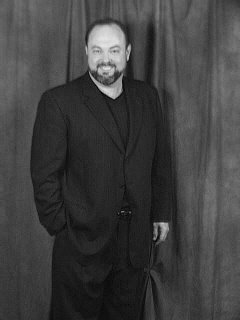
Here is a recent article by good friend and great religion writer, Terry Mattingly. Terry is a convert to Orthodoxy and his most recent article is a great way to discuss several issues:
The Need for a Genuine
re-evangelism of our Orthodox people
The Clash between what is passing culture and what is timeless tradition
The Need to reach out to disaffected Orthodox and help them return home
And many others.
Blessed Holy Week to you all. We are purposefully traveling with the Lord to a dark night and a bright day!
WASHINGTON BUREAU: Terry Mattingly's religion column for 4/04/07.
When Peter Maris' father arrived from Greece the U.S. immigration officer couldn't understand his last name and "Margaris" became "Maris."
When his mother's Jewish parents arrived from Poland they added "ski" to their name because they thought "Rafalski" sounded Catholic and, thus, would be safer.
And when Kathleen Rafalski married Dennis Maris, she immediately joined the St. Demetrios Orthodox Church in Hammond, Ind. "They were married in the Greek church," said Peter Maris, 42. "She learned to speak Greek. She learned to cook Greek. She did everything
she could to show her commitment to the faith."
Then came the parish Christmas party when his mother brought a plate of Polish cookies. His father didn't tell this story often, because it was too painful.
"Some of the women got upset," said Peter Maris. "They told my mother, 'What are you doing, bringing those in here? We don't need you and we don't need your Polish cookies. We are Greek.' "
The family walked out and never returned.
Now, nearly four decades later, Maris has come home to Eastern Orthodoxy -- just in time for "Pascha" (Easter in the West).
This is one man's story, but it contains elements of stories told by thousands of converts in an era when this old-world faith is growing in a land already packed with Protestant and Catholic churches. In most communities, Orthodox parishes are known as the "Greek church" or the "Russian church" or carry some other ethnic label.
This is one man's story and it happens to be a story that I first overheard in the fellowship hall of my own Orthodox parish. What is different about this minister named Maris is that his story combines both the joy and pain experienced by "converts" and "cradles" -- those born into Orthodoxy -- who are learning to live and worship together in an ancient church that is quietly sinking its roots into modern America.
Maris has tasted the bitter and the sweet.
There are an estimated 250 million Orthodox believers worldwide -- the second largest Christian flock -- but only 1.2 million in the 22 ethnic jurisdictions in North America. While a few leaders have raised eyebrows by claiming a 6 percent annual growth rate, an accurate count would have to account for ethnic members who are drifting out of Orthodoxy as well as converts who are joining.
It's safer to count U.S. parishes and watch clergy trends. The convert-friendly Antiochian Orthodox Archdiocese has, for example, grown from 66 parishes to 250 parishes and missions in four decades. Also, a recent survey found that 43 percent of today's seminarians are converts, a percentage that must be higher among the Antiochians and in the Orthodox Church in America, which sprang from Russian roots.
Maris is unusual, since he was baptized Orthodox before finding his way into evangelicalism. He met his Baptist wife at Chicago's Moody Bible Institute, did graduate degrees at Regent College in Vancouver, British Columbia, and worked in Korean Presbyterian and Chinese Christian churches before being ordained as a priest in the Charismatic Episcopal Church.
"For the longest time, I could only see Orthodoxy through the eyes of my childhood," he said. "For me, Orthodoxy was an ethnic ghetto. ... In many ways, I came back to the church kicking and screaming. But in the end I knew this was where I was supposed to be. There was no
place else I could go."
Maris can still speak some Greek and he has been experiencing flashbacks to early memories of the taste of Communion wine, the smell of incense, echoes of Byzantine hymns and glimpses of an icon of Jesus, high in a sanctuary dome.
However, he also remembers his parents' conflicting emotions as their new American dreams clashed with old ethnic traditions. He witnessed similar dramas in Korean and Chinese churches.
"You want to keep the language and you want to keep the food and all of that, somehow, gets mixed in with the traditions of the church," he said. "Then the parents discover that they just can't communicate with their kids and the kids just can't appreciate what is happening in church because that's all wound up with the ethnicity thing. ...
"At some point you have to claim the faith as your own -- you can't inherit it. In the end, you have to believe."
Terry Mattingly (
http://www2.blogger.com/www.tmatt.net) directs the Washington Journalism Center at the Council for Christian Colleges & Universities.


.JPG)





















